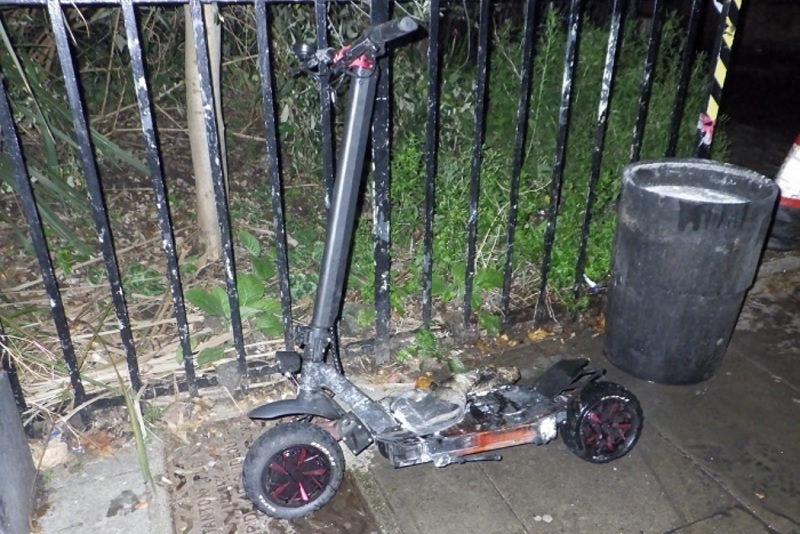
Image: London Fire Brigade
Transport for London (TfL) has announced that all privately-owned e-scooters, including those that can be folded or carried, will be banned on the Capital’s transport network.
While privately owned e-scooters remain illegal to use in public spaces, they are widely available for purchase – and used by many.
Statistics published by the Met Police show officers have seized a total of 3,637 privately owned e-scooters this year.
The move to ban them from London’s transport network follows a number of recent incidents where privately-owned e-scooters have caught fire while on TfL services or infrastructure.
In response to these incidents, TfL has reviewed the safety of e-scooters and their suitability for carriage on the transport network.
We’re backing a @TfL ban of private e-scooters on #London’s transport network. The ban comes in on Monday. Fire Investigators have growing concerns about the safety of e-scooters & e-bikes due to the amount of fires crews are attending which involve them https://t.co/ZNoJsexi9c pic.twitter.com/IudQOXj58g
— London Fire Brigade (@LondonFire) December 9, 2021
The incidents that have occurred were caused by defective lithium-ion batteries which ruptured without warning, leading to fires that caused toxic smoke to be released.
TfL considered that if this were to happen again and fires occurred in an enclosed area like a tube, train or a bus, there could be significant harm to both customers and staff, as well as secondary injuries from customers trying to escape the area.
As a result, it has decided that privately-owned e-scooters will not be permitted on any TfL service or premises from Monday 13 December. The rule also applies to e-unicycles.
Rental e-scooters are also not currently allowed on TfL services.
Lilli Matson, TfL’s chief safety, health and environment officer, said: “Our primary concern is always for the safety of our customers and staff.
“We have been extremely worried by the recent incidents on our public transport services, which involved intense fires and considerable smoke and damage. We have worked with the London Fire Brigade to determine how we should deal with these devices and, following that review, we have decided to ban them.
“Customers who try to bring them onto our network will be refused access to our stations and premises, and not be permitted to use any of our services.”
Comment on this story